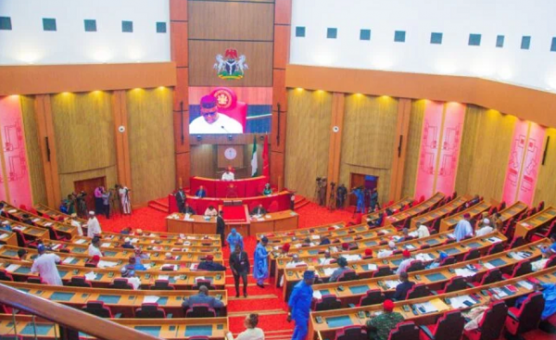The Nigerian Senate has dismissed allegations of an ongoing Christian genocide in the country, and announced plans to constitute an ad-hoc Committee to engage the United States Congress and other international partners following moves to redesignate Nigeria as a “Country of Particular Concern” over alleged persecution of Christians.
The Senate Resolution followed a motion by Senator Ali Ndume, titled: “Urgent Need to Correct Misconceptions Regarding the Purported Christian Genocide Narrative in Nigeria.”
The motion comes on the heels of a letter by U.S. Congressman, Riley Moore to Secretary of State, Marco Rubio, urging the U.S. Department of State to redesignate Nigeria as a Country of Particular Concern (CPC).
Moore alleged that over 7,000 Christians have been killed in 2025 alone and more than 19,000 churches attacked since 2009.
Senator Ndume, however, drew attention to what he described as misleading narratives being circulated internationally, often amplified by advocacy groups and foreign media.
He noted that while Nigeria faces serious security challenges including terrorism, banditry, and communal clashes, these are not defined by religion but by complex socio-economic and criminal factors affecting both Christians and Muslims.
Senate President Godswill Akpabio, in his remarks, expressed concern over what he termed a “one-sided narrative” being presented to the international community.
He warned that such portrayals could have adverse effects on Nigeria’s economy, international reputation, and her citizens abroad.
He added that the Senate would hold a closed-door session and possibly send a delegation to the U.S. to engage lawmakers and clarify the country’s true security situation.
Senator Jimmoh Ibrahim also called for a deeper understanding of terrorist tactics and urged that further discussions be held behind closed doors due to the sensitivity of the matter.
He maintained that once the U.S. Congress becomes aware of the Senate’s engagement, it could deter any hasty decision against Nigeria.
Senate Leader Opeyemi Bamidele proposed that the motion be stepped down until next week Tuesday to allow for extensive deliberations during an executive session, where strategies and the composition of the delegation to the U.S. would be finalized.
His position was seconded by Senator Abdul Ningi, who stressed that insecurity in Nigeria should not be interpreted through religious sentiments.
The motion was thereafter stepped down pending further deliberations in the executive session scheduled for next week.
Editor: Ken Eseni








